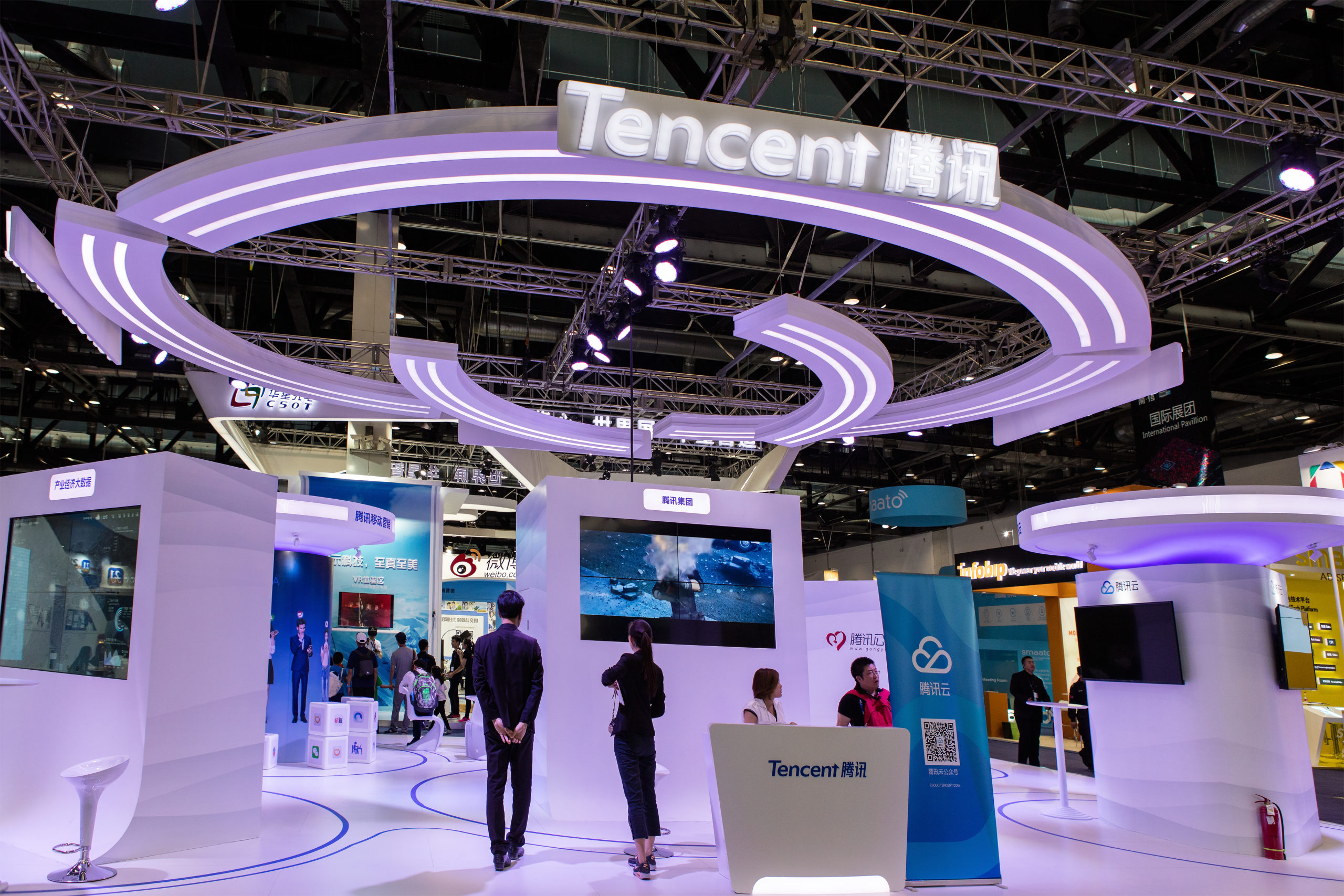This article originally appeared on Arabian Business.
The Chinese technology giant Alibaba, which has a market cap double that of Chevron’s, last month unveiled the year’s largest tech investment in the Middle East: a $600m plan to create a vast “Tech Town” — five times the size of the Pentagon — that will one day house 3,000 firms developing robotics, artificial intelligence, and new mobile apps and will be built near Dubai’s free port Jebel Ali. The deal surpasses Amazon’s $580m March investment in Souq.com, the region’s reigning e-commerce incumbent, and is the latest sign that Chinese tech titans are moving up the value chain, with cellphone giant Huawei already playing a major role in Dubai’s Smart City programme.
And this is just the beginning. China’s other three internet titans, Tencent, Baidu and Xiaomi, are all expanding to the Middle East, but doing so at different speeds. Tencent, with a market cap larger than ExxonMobil, is entering the region through subsidiaries like its popular WeChat app, which combines chat functions, online video calls and e-Payments. Online payments are a big deal in the Gulf, where foreign workers send home nearly $100bn yearly, the IMF reports, or about 7 percent of the combined GDP of Gulf monarchies.
Xiaomi, China’s largest phone manufacturer and sometimes called “China’s Apple”, recently opened stores in Dubai and Cairo, where its low-cost offerings of $88 phones may have a comparative advantage in the UAE, a large share of whose labour force are low-paid workers from India and Pakistan, and in Egypt, whose population has a yearly income of approximately $12,000 per capita. The sleek stores will showcase Xiaomi’s new phones powered by Qualcomm’s next-generation Snapdragon 835, as the company aims to reach $15bn in sales before the end of this year.
Entry pains
Baidu, known as “China’s Google”, was in the fast lane but has run into challenges. At its height the Chinese search engine had over 35 MENA employees and had poured over $5m into its regional business. But it closed its Cairo operation this year in the face of flagging success that stemmed from a lack of Arabic-speaking engineers and consumers wary about China’s reputation for counterfeit and low-quality products.
Indeed, Baidu and other Chinese tech companies may face an uphill fight if they want to dislodge Western tech companies. Google alone has the region’s most popular search engine, video platform (YouTube), internet browser (Google Chrome) and phone operating system in Android, as Baidu learned. Still, the Chinese tech giant is hard to dismiss, with a market cap larger than ConocoPhillips.
Take a step back from these mixed results and it becomes clear that China is forging a “digital Silk Road” to the region. In one direction, Didi Chuxing, known as “China’s Uber,” is taking equity stakes in Uber’s greatest regional rival Careem for an undisclosed sum. In another, Alibaba is building Middle East data centres, forming joint ventures, and hiring local staff.
Through investing in high tech, building out the region’s broadband networks, and delving into cloud computing, Chinese firms are moving in with speed and determination. In the process, they are venturing a long way from their reputations as serial tech copycats and low-end product exporters, and providing tangible sign that China is throwing its weight behind building up institutional relationships in the Middle East. And, no strangers to surmounting the logistical challenges of developing countries, Chinese tech giants may have a leg up on Western rivals.
The MENA digital prize
To those of us who are veterans in the region’s internet economy, the rise of China in MENA’s high tech sector actually reflects two deeper, strategic developments that are important for the future: Chinese tech giants’ growing desire to parlay home-grown success into economic clout on the world stage, and the astounding potential of the Middle East’s internet market, where US firms like Google traditionally have held sway.
The Middle East’s digital economy is emerging as one of the region’s few booming, non-oil industries and it presents a powerful metric for fundamental changes afoot in the region. At the forefront are Gulf leaders placing technology at the heart of their post-oil development plans. Failure by American leaders to make tech a priority, risks leaving a void for other countries to fill in addressing the needs of hungry “knowledge economies,” such as those being constructed here.
Consider that the region has north of 170 million internet users, more than the entire population of Russia, with a potential market of 90 million consumers in Egypt alone. The region’s consumers bought 86 million cell phones last year, more than the UK and France combined. These figures are not lost on high-spending advertisers and internet firms that want to attract eyeballs.
And there’s another reason Chinese tech companies smell potential in the desert breeze. State-dominated economies in the region have historically been inefficient and underbuilt, offering the chance for Chinese companies’ fast growth. Many smaller cities lack shopping centres, for example, representing a potential larger market for internet sales. The World Bank says that the Middle East has the highest share of people without access to banking services, with more than 85 million unbanked residents. This offers tantalising opportunities for Chinese firms like Alipay and WeChat, which have trained a gigantic Chinese market to order and pay for everything from groceries to taxis through simply using their phones.
The Chinese approach to “digital sovereignty,” that is, to allowing Gulf countries to “own” their own cyberspace and their own populations’ data, may offer an appealing alternative to American firms’ insistence on storing all that information in the public cloud, overseas. The tech world had better start customising its approach to the region as the Middle East comes online. What happens when American tech companies don’t prepare is evident in the strides Chinese tech giants have made in the Middle East, spreading what Google Chairman Eric Schmidt calls “China’s sphere of online influence”. Those many Arab countries not yet connected will either get built out with Chinese technology or with more democratic technology. That is, tech from prominent Western companies.
The next big push in the Middle East’s fast-shifting tech sector appears to lie in the rise of the robo-economy, the growth of the drone economy, and artificial intelligence. China’s tech companies have occasionally stumbled early-on in the process, but the fact that they are here already in such force shows they are awake to the Middle East.
American companies should consider themselves on notice.
Read article on Arabian Business.










